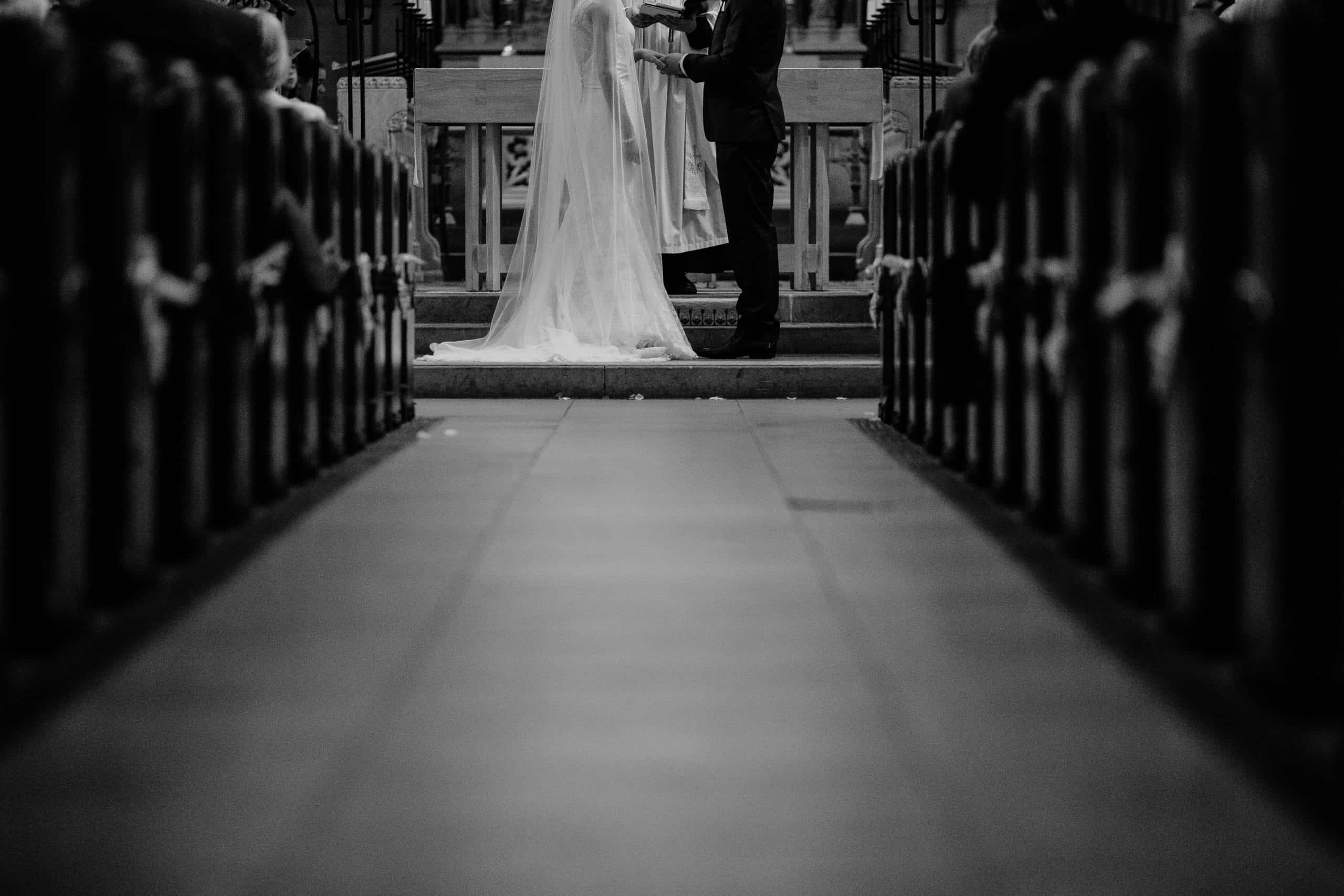The following reflection is part of our “Jesuit 101” series. This piece helps us to better understand the First Week of the Spiritual Exercises of St. Ignatius Loyola.
Every Sunday, I read my favorite section of the New York Times: the Vows. I am fascinated by how couples met, what they love about each other, and how they grew in their relationship. The specificity of those relationships and how people end up together is full of wonder for me, like one couple who met when they were asked to read from the Song of Songs together at their mutual friends’ wedding.
I love reading those stories partly because I know they will have a happy ending. While other news stories can be sad, desolating, or ambiguous, I enjoy seeing the glimmers of hope that marriage vows represent. However, the stories would not be as engaging if they only shared the highlights of the relationships.
The other part I love about those stories is reading about how the featured couples overcame significant obstacles in their relationships. For one couple, it was a serious diagnosis of lupus and an extended stay in the ICU that deepened their commitment. For another couple, it was a twice-rescheduled first date that set the stage for their relationship. One groom’s motorcycle accident meant a dramatic change in his usual plans for active dates. Or an unlikely match between a Lutheran pastor and a Muslim actuary that revealed a compatibility deeper than their religious differences.
Despite the obstacles in these relationships, I know where the story ends: two people make a commitment to each other out of love in the witness of a larger community.
These stories remind me of my experience of the First Week of the Spiritual Exercises. On my own Long Retreat, I was prompted to pray about obstacles in my relationship with God or with other people. That is one way to understand sin: anything that gets in the way of a loving relationship with God.
During that retreat, I often prayed about specific friends and the obstacles that got in the way of the kind of relationship that I wanted to have with them. Often I noticed simply that I wanted something different from the other person. And sometimes there were clear mistakes I had made or choices that led me away from others.
As the retreat deepened, it became clear to me how God was preparing me for other relationships in the future. Recalling a regret that I had about letting go of one specific friendship became a moment of clarity about the type of friendships that I want. Another memory of going to a concert with a friend became an image of God enjoying spending time with me. All those past obstacles and moments of connection were transformed into signposts for my friendship with God.
Initially, I started reading marriage stories because they fed my idealism about relationships.. I often want those kinds of deeper connections, and I can get frustrated at any obstacle that gets in the way. But my experience of the First Week helped to reform that frustration into recognition of deeper desires for God’s love and care.
Even after the retreat, I regularly find myself in similar moments of reflection when something is frustrating me about a relationship. It often feels like there are things outside my control that get in the way: my own limitations, a lack of time or energy, or difficult realities in the world. It can be easy for me to get stuck behind those obstacles. And sometimes they feel like insurmountable walls.
The First Week calls us to encounter and name these obstacles directly. But that can never be the end of the story. What ultimately matters is making the choice of a relationship beyond the obstacles. Just like the wedding stories, we know where our story ends: in God’s unconditional love for us. It’s up to us, however, to choose to be an active participant in that relationship. Like married couples, we do not face those obstacles alone, but in partnership with God and in the presence of a wider community of believers. Acknowledging the obstacles makes that love and commitment more real and more powerful for our own life and as a witness for others.nh
Like the Vows section, the stories we tell about our relationships matter, especially with God. How might you describe that relationship in your own life? Does your story tend towards despair and ruin? Or does your story reveal the hope and renewal we have in Christ? And how do you respond when you encounter obstacles? The First Week allows us the opportunity to name the obstacles in the greatest love story of our lives. Only then can we meet God at the altar and say those pivotal words of commitment: “I do.”
———
Photo by Jeremy Wong Weddings


